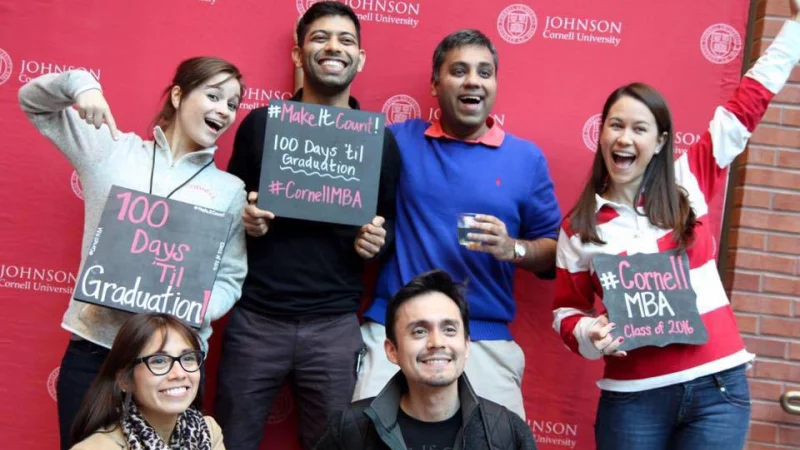
How does a Cornell MBA transform your career? Join our upcoming (free!) webinar with Cornell and one of its most successful alumni, Rahul Shahani, MBA ‘16, to find out. To get an insight into what will be discussed, we spoke to Rahul about what makes the Cornell MBA experience unique and how it shaped his career.
Rahul is a partner with McKinsey based in New York and leads the North American Industry 4.0 service line for Manufacturing and their Digital Capability Centers. Prior to McKinsey, Rahul worked in manufacturing at BlackBerry & Toyota in Canada.
Rahul: I have an undergrad degree in Mechatronics Engineering and spent around 10yrs in Canada. I wanted to do an MBA in the US to help me shift into more strategic roles in the US – which had many more opportunities. As I looked at schools, Cornell felt like home – a place where I could feel comfortable pushing myself and this very much turned out to be true. It was a welcoming and safe environment where I felt like I could be myself. This feeling was created by a combination of the students, faculty, and staff who made it their mission to make you feel comfortable when visiting the campus.
And what did you gain through your time as an MBA student there?
Cornell taught me what it feels like to be a leader in a community and that experience helped me seek out and succeed in formal and informal leadership roles at work. I had a chance to practice servant leadership – I did things, not for any gain other than to help my friends, which helped me become a better leader in the workplace.

Rahul with new friends on a pre-MBA trip to Costa Rica
The Financial Times recently ranked Cornell as the no.1 for alumni network. Could you tell us about the diverse perspectives and backgrounds of your classmates at Cornell and the network you built there?
I had a chance to work with and connect with diverse classmates. This helped me become more understanding of my team’s needs and be a better leader – the close relationships at Cornell helped me connect with the individual stories of my classmates and build a much greater appreciation for the diversity that I had not experienced personally. The Johnson community was at the center of our experience along with Ithaca. This built a close-knit culture that exuded trust and camaraderie and forged deep long-lasting relationships.
I stay very connected to my alumni network via LinkedIn and even in person when I travel. They help build a sense of community outside school and connect me to circles outside my traditional sphere of influence.
Through our MBA Cultural Fit research – where we looked into the culture and community of top MBAs across the world, we found that Cornell Johnson has a strong emphasis on teamwork and teaching team skills. Does that reflect what you experienced?
Teams were at the center of how we worked – on assignments, projects, and social activities – from the core team for classes in the first semester to the annual giving team. They helped me hone my leadership style and become an effective team leader.
I wanted to help make recruiting prep easier. I met with the dean and we designed a project to understand how much time people were spending on recruiting. I interviewed my peers and identified that supporting peers for recruiting took up a lot more time than the administration expected with a few students providing outsized efforts (e.g., those with internships in prestigious companies). We were able to design a model that gave these students course credit and some reprieve. It was a great example of the community shaping how we wanted to work and the faculty and administration supporting us.

Cornell Johnson MBA students traveled to China where they met local companies, and alumni, and immersed themselves in the culture
I viewed it as a once-in-a-lifetime opportunity. I would never do an MBA again – so I prioritized personal development and camaraderie – this was much easier once I secured my internship offer. Essentially, once we secured internships, we had a lot less pressure and were able to devote that to academics and investing in the community. The Cornell MBA has helped me connect with peers and leaders who have helped me raise my aspirations.
What advice would you give to candidates considering an MBA at Cornell?
Do it! Don’t look back and it will pay dividends for a lifetime.
Sign up for the free webinar, THE CORNELL DIFFERENCE: LIFE AFTER THE MBA, on 22 February at 10 am New York time (GMT -5), to hear more from Rahul and Cornell Johnson Associate Director, Emily Rutherford
Comments